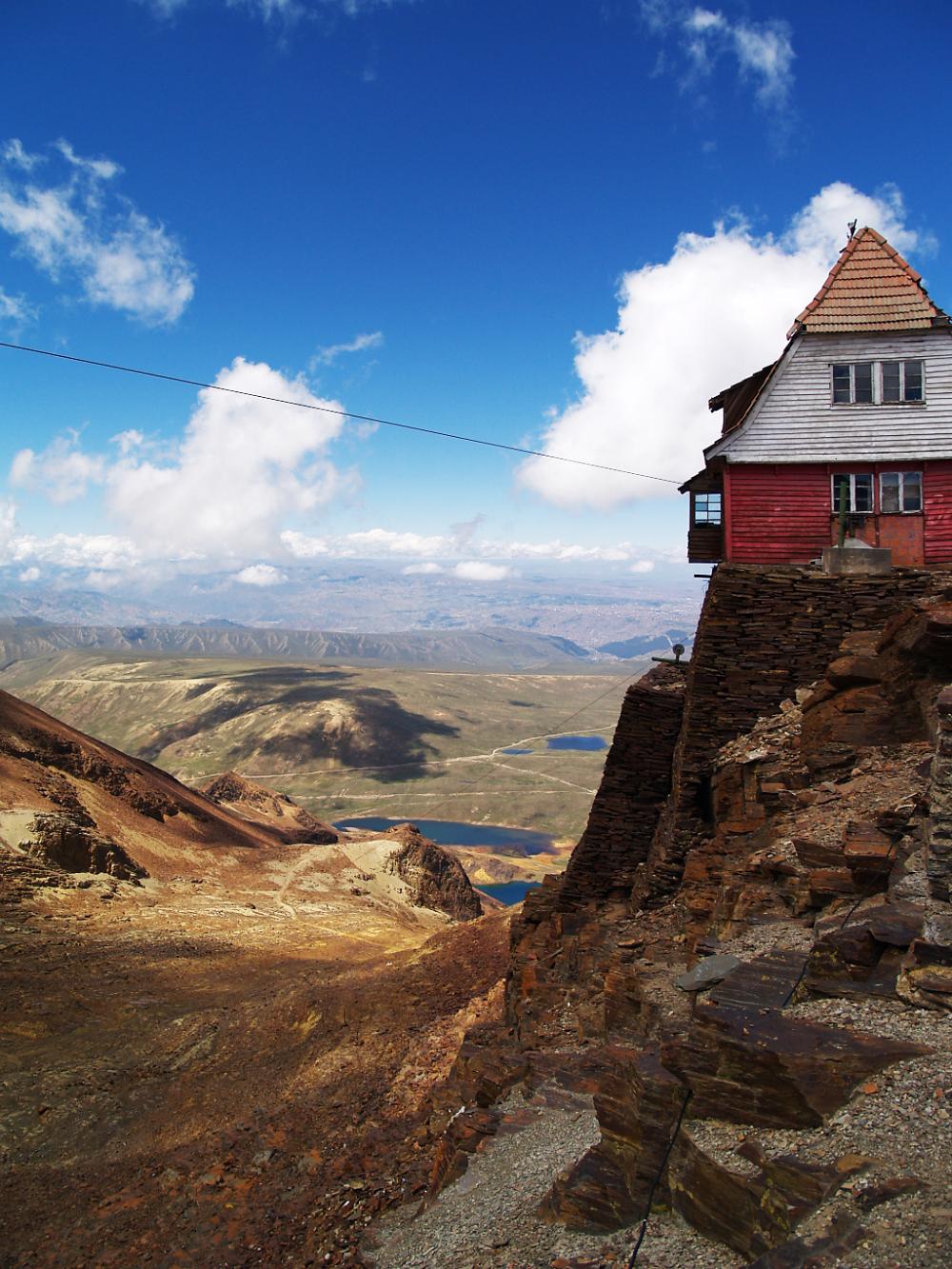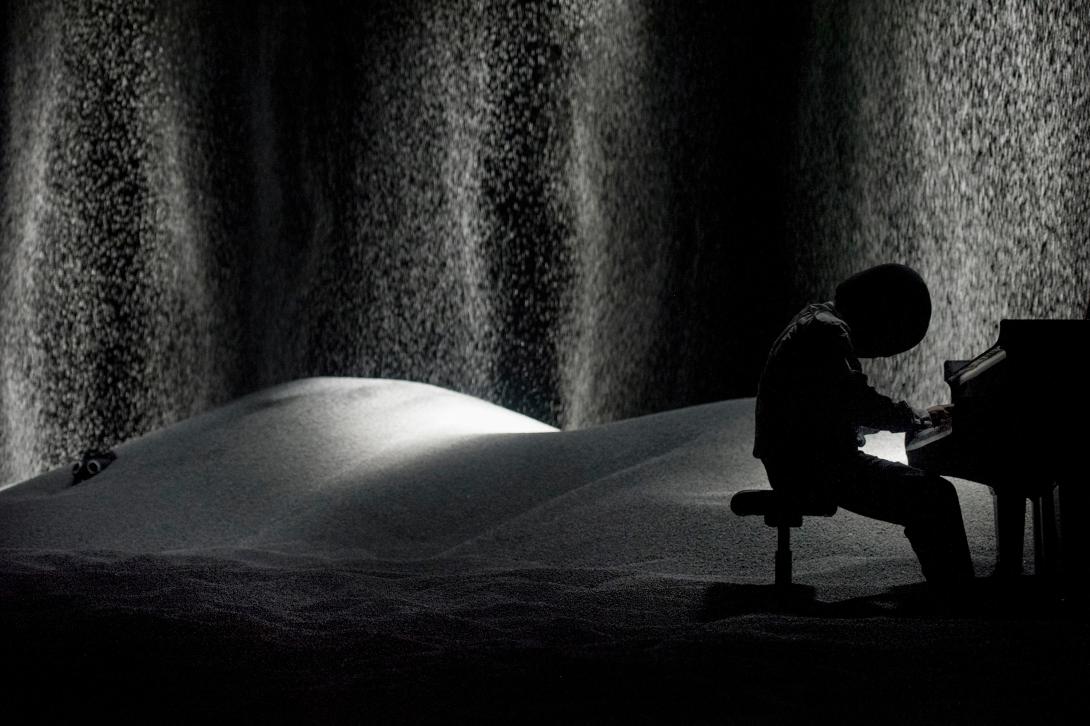A Bittersweet Acceptance of the End
In conversation with Kris Verdonck and Kristof van Baarle
In his latest production, Kris Verdonck plays with the question of what people would talk about if the world around them started disintegrating. How do we deal with the end? And what does it tell us about our worldviews today? A collage of texts and music paired with an eccentric sense of humour, beauty and language, creates a sense that everything has passed. Pitch-black but hilarious, or bittersweet as Verdonck and dramatist Kristof van Baarle prefer to call it.
Bittersweet acceptance of the end, that is not an everyday perspective. Where did you get the idea?
KRIS VERDONCK: ‘The end’, in whatever form, is a consistent theme in my work. Some of my installations and performances show the moment before the end, some depict the moments after, and Conversations is set right in the moment of the transition: from just begun to just passed. What exactly is ending here is not completely clear. It might be the world, a society, humankind, a certain worldview… But humans always play some part in causing this endpoint, it is not caused by a meteor of anything like that. With this question in mind, we happened to find a unique document: the conversations of the “oberiutes”, the clique led by Russian author Daniil Kharms (1905-1942). As the last artists in Russia, they held their last “salons” almost literally on the ruins of Saint Petersburg. These were poor salons, which were more like conversations, and with the occasional musical interlude. One of them made notes of their conversations. These notes survived several wars and will soon by published in English.
KRISTOF VAN BAARLE: These conversations are so interesting because of the conditions in which they were conducted: persecuted by the Soviet regime, dirt poor, hungry, just after the first Great War and revolution and on the eve of a second great war and the occupation of Leningrad (1941-1943). Despite the risk of imprisonment, they conducted their discussions anyway, and wrote them down. These conversations contain a painful lightness, an unbelievable persistence in the search for insight. They are attempts to understand what is happening, even though it is clear that it is incomprehensible and that understanding will not save them.
K.V.: These discussions are actually very hopeful and very funny. The oberiutes thought of themselves as characters from the Apocalypse by John, but in a version that might have been by Monty Python. They were so doomed to die that they actually already felt dead.
How did you write the script?
K.V.: These discussions formed the basis of the production. They are literally testimonies from the edge of the world. All the speakers were sent to labour camps or died of starvation. We combined the conversations with other testimonies of earthquakes, wars, ecological disasters, or the situation in Aleppo. We also incorporated the work of W.G. Sebald and Curzio Malaparte, as well as news reports. There aren’t always people standing on ruins who are ready to ready to tell a joke, but similar situations do occur: during an earthquake in Italy a few years ago, an old woman got trapped under the rubble. She called to a rescue worker to hurry because she was desperate for the toilet. The ultimate pride not to want to wet herself and the humour that it released evoke a profound sense of humanity.
KVB: We spent a long time looking for material from comparable situations and conversations between people that cover the same existential content. The difficult condition was that the material had to contain this specific attitude towards the end: a hopeful acceptance. This condition was also difficult in terms of the dynamism: Heiner Müller once said that the theatre is really a place for people who are approaching death and that a dramatic narrative should therefore be replaced by an ‘it is all already over’. Knowing that there is no pride, but persisting nonetheless.
What are the important endings that you use as reference points?
KV: It is not so much literally about “the end”, but about the human condition at a time like that. What are our last words? After working on this theme for almost a year, our findings are by no means all darkness and tragedy. It is so often the case that the dying person tries to comfort the mourners. And however difficult, there are often funny moments too. Kharms is unique because he articulated this condition in such an extreme way: when somebody is missing a leg in his texts, it is probably the result of cannibalism – in times of famine, values and norms become more relative. But the man without the leg in question thinks this is merely a detail.
As people, we have a very strange attraction to destruction. Why is there such a thing as rubbernecking and why are disaster often described as “beautiful”? Why do tourists go to look at collapsed glaciers? We are very strange species.
KVB: WWII was a pivotal moment in the last century: the fragility of human life became more palpable than ever. The potential of an ending that we caused ourselves, or the sense that perhaps we are living after that ending in some way: these are two spectres under which we have been living ever since. To me, this is an important element that continues to put everything in a different perspective.
Including in the making of a production?
KV: Dostoevsky was once up against a wall. He was facing a firing squad. Somebody saved him in the nick of time. Afterwards, he swore that he was going to live as intensely as possible; he would experience every moment intensely. But later he declared that this was impossible to sustain, because there were many ordinary, boring moments.
Conversations is a very special production to me. It feels like a central point in my work. During the performance, the actors will be completely snowed under, but they will continue to act. They will thus make a transition from a “theatre production” to “an installation”. The actors will literally disappear onstage. The performance will end with a talking landscape. The people are gone, but their ghosts remain.
KVB: In such ‘end-of-time’ contexts, the ‘act’ of making a joke, having a conversation, writing a text or composing music becomes a very special act as such. Taking time to do something of quality, trying to dissect something with a free imagination.
Finally, how does this production relate to the rest of your oeuvre, in which machines and the relationship between object and subject are important themes?
KV: I think Conversations will primarily be the text version of Untitled (2014), in which people do still speak rather than merely making gestures. In Untitled, the character is so burdened by a stifling economic and commercial system that it kills him. Conversations depicts a similar sort of problem: here too, the characters will gradually disappear. The only thing left for them to do before that happens is to have their conversations. But it is not clear when exactly the end will come. There is a film from Aleppo of a man filming a barrel bomb and saying “this bomb is it, goodbye everybody”. But the bomb gets caught in the wind, which sends it off in a different direction. That is a problem for our friend because he has just officially said his farewells and now he has to say “see you tomorrow”. That is also what Kharms and the oberiutes do. They sit around a table and know that they are going to die. Each text reads as though it is their last, even though Kharms only died of starvation seven years later. It is a modern version of Beckett’s Waiting for Godot.
The most exciting thing about this production is the transition from people onstage to an empty stage. Only the text continues to echo through the theatre, transforming the production from actors on the stage to an audio performance. There are not many performances that transcend death. Usually everything ends when the hero kicks the bucket. In this sense, we got ourselves into trouble as playwrights and directors because what more is there to say when there are no more people? Nothing really. But in the theatre, there are techniques like the voice over that can still give absent people a voice. But what more is there to be said once the world has passed away?

